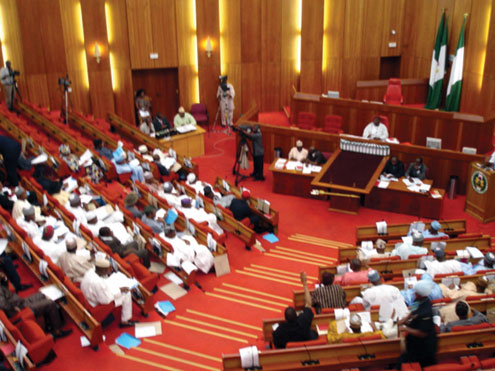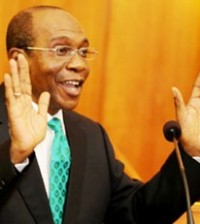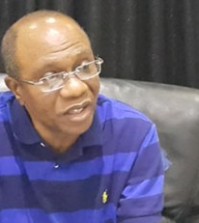Banks, customers disagree on CBN’s bank account categorisation policy
Bank customers have questioned the rationale behind the new policy of the Central Bank of Nigeria (CBN) on categorisation of bank accounts, saying it is counter-productive with respect to its cashless initiative.
The CBN policy categorised bank customers into Low Value Accounts (Level One); Medium Value Accounts (Level two) and High Value Accounts (Level three), setting new deposit limits for each category of account holders and introduced a three-tier Know Your Customer (KYC) requirements for banks.
In his reaction, Matthew Ogagavworia, a stockbroker said; “We now have a Central Bank leadership that believes the only way to include the many unbanked is to classify them as Low Value Account and limit the maximum single deposit they can make and also peg the maximum such people can lodge into their Low Value Account.
“Our Governor is not discussing issues of lower interest rates for the whole economy, nor a destructive inflation rate or foreign exchange stability that is optimal or the flow of credit to sectors of the economy that can support tangible economic development. It is either discussing politics or exhibiting crass ineptitude in the policies it initiates to combat economic problems he is paid for. The other day, it was an additional Know Your Customer, KYC, requirement, today, it’s account categorization.”
Mr. Mike Azuka, a customer with UBA Plc said; “The account categorization should not be a priority at the moment. The CBN should think of things that would boost production and enhance the wellbeing of the people. A better policy like lowering of interest rate, reduction of inflation, and enhancement of naira should be things that the monetary authority should be thinking of.
“At the moment, the manufacturing sector is suffering for lack of funds; even the funds available to them are very costly to access. It would be better for the CBN to reduce Monetary Policy Rate (MPR) so that banks can reduce the interest rate charged on loans.”
According to Elvis Madu, another customer with a new generation bank, the new policy shows that CBN is confused. He said that the CBN is complicating account opening process rather than simplifying it. Madu said that the banks might capitalise on the new policy to introduce unnecessary fees.
“With this new policy, if a customer wants to upgrade after getting to a certain level, the banks might take advantage of the situation to introduce charges which ordinarily the customer did not anticipate. The CBN has not been able to do anything about the previous charges, how are we sure that it can do something when the banks eventually introduce charges in this new policy?”
In his own reaction, Mr. Akonte Ekine, Managing Director, Absolute PR, said; “It would be a disaster for the banking industry if something like that is introduced. The banks say they are looking for customers and now they are trying to categorise account holders, this will definitely scare depositors away from the banks. It will be a bad sell for banks to try to categorise accounts.”
Also speaking, Mrs. Constance Igboanugo, Executive Director, Orlick Communications, said; “This would pose danger for the banking industry. What is the government trying to achieve with this kind of measure? The measure will ruin the banks, people will begin to keep their money at home.
“The CBN recently talked about cashless society and now is trying to categorise accounts. It is absurd. What are they trying to tell Nigerians, not to grow their accounts to a level? Nigerians will become apprehensive to save in the banks because now people will believe that government wants to monitor their savings that will not help the banks, particularly where the government is talking about the banking industry.”
However, many of the banks that spoke to Vanguard on the categorisation of customers based on the account balance said, the policy is a welcome development as it will help them to know more about the customers they are dealing with. The measure will not make the banking public to hide their money as being speculated, rather it will help them to bring more of the money to the system.
They further noted that once a customer opens an account with a bank as a low income earner, he or she does not need to open another account when he or she graduates to middle income earner as the system will automatically move such category of person to the next class based on the balance in his or her account.
“If people decide to keep their money at home, it will not benefit them nor the economy. If you keep money at home, it will lose value but when it is saved in the bank, interest will be paid to the owner and the money will also be lent out to those who need them for productive purposes that will generally engender growth and development of the country,” an official of one of the banks said on condition of anonymity.
The new policy was announced last month by the CBN via a circular to all banks and other financial institutions (OFIs). The circular which was signed by the Director, Financial Policy and Regulations Department, Chris Chukwu, set maximum single deposit amount of N20,000 and N50,000 for Low and Medium Value Accounts respectively.
The policy also pegged maximum cumulative balance for Low Value Accounts at N200,000 at any point in time and a maximum cumulative balance of N400,000 on the Medium Value Account. However, for the High Value Account, no limit was placed on cumulative balance.
The circular explained that the policy became exigent after the CBN recognised that access to basic banking facilities and other financial services was necessary in achieving the policy on financial inclusion. The CBN in the circular advised banks to adopt the new KYC requirement, adding that the proposed deposit limits was meant to reduce the risk of money laundering and financing of terrorism, noting that the Low Value Accounts are subject to close monitoring by the financial institutions and less scrutiny by bank examiners.
The CBN said the Low Value account can be opened at branches of banks by a prospective customer or through banking agents and no amount is required for opening. However, such accounts prohibit international funds transfer.
Furtheremore, the Medium Value Accounts can be opened face to face at any branch of a bank by agents for enterprises or by the account holder, but the accounts are strictly savings with no amount required for its opening. Also, where cross-checking of client’s identity cards information is not completed at the point of account opening, withdrawal would be denied.
The CBN added that for the High-Value Accounts, banks are required to obtain, verify and maintain copies of all the required documents for account opening. Accounts are to be opened at the bank branches by physical presence of the prospective customer and the accounts can be both savings and current.
However, for mobile banking products, the account attracts a maximum transaction limit of N100, 000 and daily limit of N1 million. However, such products are subject to the CBN Regulatory Framework for Mobile Payments Services in Nigeria.
Banks are required to have a robust, effective and efficient anti-money laundering/combating financial terrorism (AML/CFT) solution with screening tools in place that will monitor the various thresholds.
“All accounts, no matter how low the transaction or the risks, must be subjected to continuous suspicious transactions monitoring by financial institutions which will determine when incremental KYC requirements need to be provided by the customers,” the circular said, adding that the CBN would ensure the establishment of appropriate processes and procedures for the purpose of monitoring compliance with the regulatory framework
The circular said that non-compliant financial institutions would be sanctioned in line with the provisions of extant laws and regulations. According to the apex bank, 64.1 per cent representing 56.3 million adult Nigerians do not have access to financial services, hence the policy is designed to bridge the gap.
[Vanguard]








